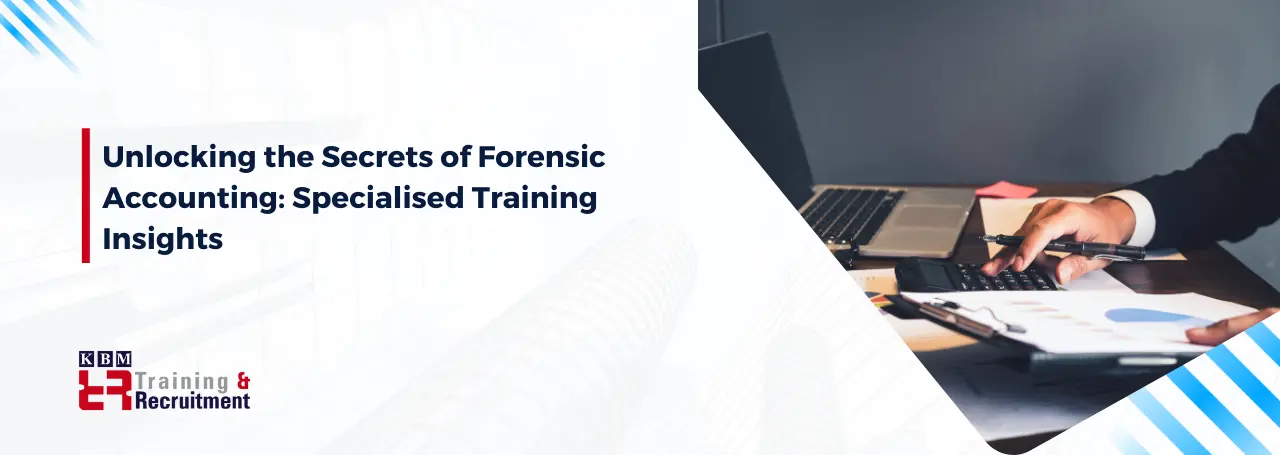Forensic accounting is a multidisciplinary field that combines accounting principles with investigative methodologies to uncover financial irregularities and fraud. As organisations face heightened scrutiny and regulatory requirements, the demand for skilled forensic accountants has surged.
Mastering the techniques and skills required for this specialised domain is essential for professionals aiming to excel in this challenging yet rewarding field.
Advanced Accounting and Auditing Skills
A solid understanding of accounting principles and auditing standards forms the foundation of forensic accounting expertise. Specialised training delves into financial statement analysis, internal controls assessment, and audit procedures.
Through hands-on experience with accounting software and forensic tools, aspiring forensic accountants gain proficiency in analysing complex financial data efficiently and accurately.
By honing their analytical skills and technical expertise, they can effectively identify anomalies and discrepancies that may indicate fraudulent activities.
Investigative Techniques and Methodologies
Investigative techniques that enable professionals to uncover evidence of financial misconduct are central to the practice of forensic accounting. Training in data mining, interviewing, surveillance, and document analysis gives forensic accountants the necessary skills to conduct thorough investigations.
Case studies and real-world scenarios offer valuable opportunities for practical application, allowing aspiring forensic professionals to refine their investigative methodologies and develop critical thinking skills in simulated environments.
Legal and Regulatory Knowledge
Forensic accountants often collaborate with legal professionals and law enforcement agencies, necessitating a solid understanding of relevant laws, regulations, and legal procedures.
Training covers topics such as the Sarbanes-Oxley Act, the Foreign Corrupt Practices Act, and other rules governing financial fraud and white-collar crime.
Familiarity with legal principles and evidentiary standards is crucial for conducting investigations that withstand legal scrutiny. Forensic accountants learn to navigate the complex legal landscape through specialised training while adhering to ethical standards and professional guidelines.
Ethical Considerations and Professional Standards
Ethical conduct is paramount in forensic accounting, where professionals are tasked with uncovering financial improprieties and safeguarding the integrity of financial information. Training emphasises the importance of integrity, objectivity, and professional scepticism in conducting investigations.
Forensic accountants are guided by ethical standards set forth by professional organisations such as the Association of Certified Fraud Examiners (ACFE) and the American Institute of Certified Public Accountants (AICPA). By upholding ethical principles and maintaining independence, forensic accountants instil confidence in their findings and recommendations.
Communication and Presentation Skills
Effective communication is essential for forensic accountants, who must convey complex financial information clearly and convincingly. Training in report writing, courtroom testimony, and presentation skills equips professionals with the ability to articulate their findings with clarity and precision.
Through mock trials and role-playing exercises, aspiring forensic accountants refine their communication techniques and develop confidence in presenting their findings to diverse audiences. By mastering the art of effective communication, forensic accountants enhance their impact and credibility as trusted advisors in legal proceedings and investigative matters.
Continuing Education and Professional Development
In a rapidly changing field like forensic accounting, continuous learning and professional development are necessary to stay updated on industry trends and best practices. Specialised training programmes offer opportunities for ongoing skill enhancement through seminars, workshops, and certification programmes.
Forensic accountants must remain vigilant in updating their knowledge and expertise to adapt to emerging technologies, regulatory changes, and evolving fraud schemes. By investing in lifelong learning, forensic accountants are trusted experts capable of navigating complex financial investigations and delivering actionable insights to stakeholders.
Wrap up
Mastering the techniques and skills required for forensic accounting is essential for professionals seeking to excel in this specialised field. Advanced accounting and auditing skills, investigative techniques, legal knowledge, ethical considerations, communication skills, ongoing professional development, and specialised training programmes provide aspiring forensic accountants with the tools and expertise to uncover financial fraud, safeguard financial integrity, and uphold ethical standards. By investing in comprehensive training and continuous learning, forensic accountants are vital in promoting transparency, accountability, and trust in the economic marketplace.






















